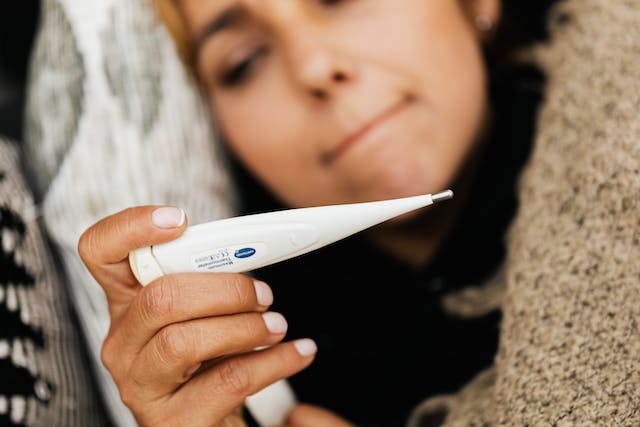
What's the TLC Normal Range and When to Get Leucocyte Count Tested
Time to read 9 min
Time to read 9 min
The total leukocyte count or TLC normal range is between 5,000 and 11,000/microliters for men, and between 4,500 and 11,000/microliters for women. The actual number can depend on age, lifestyle, infection exposure, and other factors which is why the complete medical history must be studied.
The TLC test measures the count of white blood cells in the body. The total leukocyte count TLC in the blood can indicate the presence of an infection, an autoimmune condition, or a deficiency when there are numbers outside of the normal range of reference.
The number of white blood cells in the body are an indication of the functioning of the immune system. The blood test for the total leukocyte count test can provide more information about the 5 types of leukocytes. With the role of TLC in the body being vital for wellbeing, it is important to check their levels.
Neutrophils are the first line of defence for the white blood cells when there is a threat detected. They are the first cells that are sent to the site of infection.
They account for less than 5% of the total white blood cells in the body but are a vital protector from parasites, allergens, bacteria, etc.
These are the least common type of WBC and are primarily there to protect against pathogens and parasites. They also help improve blood flow and prevent blood clots.
The B cells produce antibodies against foreign bacteria, parasites, toxins, etc. The T cells control your body's immune system response.
Monocytes are present in the blood and tissues to fight germs, bacteria, and infections at site.
There are many instances when getting a total leukocyte count is important. The test results should provide more information about your symptoms, and whether you need to start treatment as a part of an ongoing check-up.
It is important to know what is the total leukocyte count or WBC in the body as a part of the annual check-up. This checks for infections, signs of immune system issues, and overall health and wellbeing.
You may experience symptoms of low immunity, including sneezing, constant coughing, fevers, and sluggishness.
If you are dealing with a lung or kidney infection, then you would need to check your TLC count regularly.
Diabetes, arthritis, and other chronic conditions should be checked with the person's WBC and immune health.
If you are managing an autoimmune condition, then getting your total leukocyte count checked regularly will be vital to your health.
Blood disorders and clotting issues should be checked regularly with a complete blood count test, especially including WBC.
If you have the following signs of low leukocyte count, then getting tested will be vital.
Fevers that range above 101-102F for a few days should be tested with a complete blood count check-up. This will be able to help you find out whether there is an infection or another condition that is causing this.
Rashes can be a sign of immune system load, which may mean that your TLC count may not be within range.
Chronic fatigue and sluggishness should be checked for immune health issues. These may be connected to problems with low leukocyte counts in the body.
Getting sick repeatedly over several periods can be a sign of low leukocyte counts. You can get your complete blood work done.
Body pain may be a sign of low WBC levels, especially when you also have a fever or additional accompanying symptoms.
TLC, or Total Leukocyte Count, and when to have a leukocyte count test is important in observing the health status since it shows white blood cells count in the body.
A blood test that measures the number of white blood cells in the blood is known as the TLC test.
White blood cells are also a key factor in immunity, as they help to protect the body against infection, inflammation, or other foreign agents. The white blood cell count is thus an important measure of whether the immune system is healthy or not.
The overall number of white blood cells normally present in a microliter of blood ranges from 4,000 to 11,000. The normal range for TLC varies with each individual according to age, sex, and overall health. However, in most cases, it may be a sign of having a healthy immune system.
Deviations like high TLC and low total leucocyte count tlc levels are signs that need medical follow-up to diagnose some health concerns. For instance, low total leucocyte count tlc might signify diseases like viral infections or disorders of the bone marrow, while high TLC could result from infections, stress, or certain diseases.
A TLC test is usually recommended by your doctor once there are symptoms that indicate that the immune system is imbalanced. General symptoms that may lead a doctor to advise a TLC test include fever, fatigue, unexplained inflammation, and persistent infections.
It usually will be followed up with other tests to determine the cause, if the leukocyte count is out of the range of the normal. Often, it is included in the total blood count, or CBC, as a general measurement of red cells, white cells, and platelets.
Factors affecting white blood cells count include the following:. Low TLC may be a sign of waning immunity, which can be due to some diseases such as autoimmune diseases, malnutrition, or even chemotherapy. In this scenario, the underlying cause of the disease has to a part of the identifying effective treatment.
High TLC may signify an acute infection or other complications within the body. Other causes of high TLC include inflammation and physical stress or tissue injury.
The TLC test is also quite useful in monitoring health conditions and the effectiveness of treatment. For instance, in chemotherapy patients, the TLC test traces the effects of a certain treatment on the bone marrow—the very place where white blood cells are produced.
Health in the bone marrow directly affects the leukocyte count because these cells are mainly generated in the bone marrow. Disorders such as leukemia in the bone marrow will make the count of TLC abnormal. The immune system is therefore affected.
The normal range of the TLC test provides a reference for the interpretation of test results in terms of the body's immune response. However, the knowledge of what constitutes the leukocyte count in context is important. Stress, medication, and lifestyle, among others, affect the TLC count.
Hence, it is always suggested that such results be discussed with the doctor who can understand these and decide if further tests or treatments may be required.
In some instances, a low TLC count might be transient, due to minor infections among others that are curable.
However, chronic low TCL levels might be caused by a serious health condition such as an affliction in the bone marrow.
If your physician monitors low TLC results over time, then you may be advised to undergo other tests aimed at evaluating bone marrow health among other causes for low TCL.
In summary, the TLC test is a simple one which can easily be applied to check on the presence of the immune system.
Actually, whether for purposes of diagnosing infections, monitoring chronic diseases, or keeping an eye on the functions of bone marrow, the TLC test has been very informative.
In case you experience symptoms such as fever that last for a long time, weakness, or even odd infections, this total leukocyte count may be one of the first tests your doctor will prescribe for you.
Following the range of TLC over time may present how the immune system changes and let doctors make the appropriate decision for their treatment.
For instance, patients who have chronic conditions or immunodeficiency should be followed up regularly to determine the total count of leukocytes. A white blood cell count is an indicator that determines how well the immune system functions.
The appropriate time when a leucocyte count test should be gotten and the ranges considered normal are very important factors in proactive health management.
• The full form of the TLC is Total Leukocyte Count. The total leukocyte count measures the total count of white blood cells present in the blood. White blood cells aid the immune system to protect the body against most infections and diseases.
• TLC is a blood test which counts white blood cells in the blood. White blood cells are a vital component of the immune system. The TLC test helps analyse and evaluate the status of the immune system by counting white blood cells, which would indicate whether it is infected with infections or has immune disorders or other abnormalities in the body.
• The normal range for TLC usually falls between 4,000 to 11,000 white blood cells per microliter of blood. Many factors including age and health can contribute to the determination of the normal range for total leukocyte count but under the normal range for TLC above, the immune system is generally at a healthy state.
• It indicates an elevated WBC count in the blood, hence showing signs of infection, inflammation, or stress to the immune system. The TLC can be high due to infections and tissue damage, even chronic inflammatory diseases. If your TLC is up, your physician may examine the cause of this to identify the explanation for this rise.
• Low TLC reflects low count of white blood cells in the blood. It could also signify the weakness of the immune system or damage within the bone marrow. Some medical conditions, such as infections caused by viruses or autoimmune disease, along with certain medications, may also lead to having a low TLC. If your TLC value constantly receives a report of being low, the doctor would most probably recommend further tests to determine the cause.
• get the TLC test when you have symptoms that are indicated by fever, or constant fatigue, or some other forms of unexplained inflammations or infections. The TLC test is mostly ordered when doing a complete blood count to test the immune system. The doctor may refer you for the test if he suspects an infection or an immune disorder.
• White blood cells may also be obtained through the bone marrow. It seems clear that abnormalities of the bone marrow can impact the general count of the leukocytes. TLC levels may impact the body in its entirety; these can include a low level of TLC, which might impair the immunity level of the human body and makes it more susceptible to infections.
TLC test is contained in a Complete Blood Count (CBC), believed to be one of the most common and comprehensive blood tests. A CBC measures different parts of the blood, including red blood cells, white blood cells, and platelets; it is among the most informative blood tests when it comes to general health and immune system status.
There are numerous causes of abnormal TLC by the body. High TLC may indicate infections, stress, or inflammatory disorders. My TLC is indicating to a immune suppression or bone marrow problems. Other factors that could affect the TLC score include drugs, lifestyle, and stress.
• Yes, many lifestyle factors - diet, exercise, levels of stress - affect the total number of white blood cells in your blood. Maintaining good lifestyle support the immune system; therefore, it should favour TLC. Any abrupt changes in levels always have to be discussed with your doctor.
• If your TLC report is abnormal, consult with your physician to learn what's causing the abnormality. A deviated total leukocyte count may demand more diagnostic tests or a change in lifestyle. To live healthily and keep a mighty immune system, an abnormal count requires determining the cause of deviation.
* Medical Disclaimer - The following information is for educational purposes only. No information provided on this website, including text, graphic, and images, are intended as substitutes for professional medical advice. Please consult with your doctor about specific medical advice pertaining to your condition(s).
* * Medical Disclaimer - The following information is for educational purposes only. No information provided on this website, including text, graphic, and images, are intended as substitutes for professional medical advice. Please consult with your doctor about specific medical advice pertaining to your condition(s).











